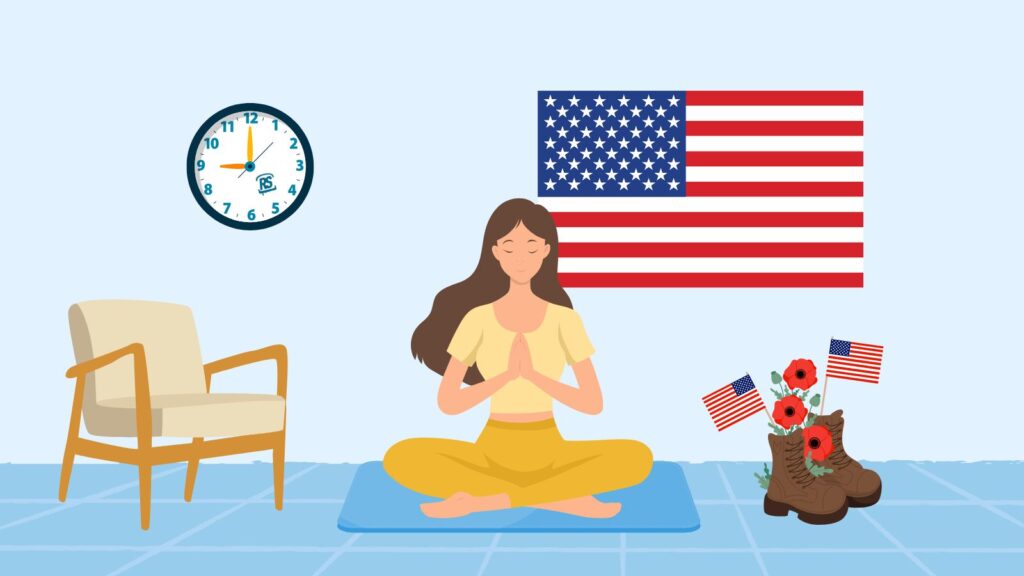In my early twenties, I worked one summer as a security guard at Alexander's Department Store and I learned the power of uniforms. On the day prior to beginning work, I got locked out of my car in the Alexander's parking lot and frantically went to ask the security guard to help me break into my car. "No problem, sir," he said, grabbed a coat hanger, and opened my car door in under five minutes. The next day, my first day on the job, a distraught woman approached me, locked out of her car. I was now the one in uniform, and it somehow magically conveyed skills I had lacked only a day before. "No problem, ma'am," I said with a certain confidence, if not bravado, and easily broke into her car with a coat hanger.
After some months on the job, I learned how much power my guard uniform really had, when I was required to frisk a kid who was about my age, nabbed by the store detectives for shoplifting. I had never frisked anyone before, apart from several girlfriends, none of whom were armed with anything more dangerous than breasts and various other female body parts (and I was too young to recognize that those could also be used as powerful weapons). As I patted down the young man, I was smiling, thinking that it was a game, like the guys on TV, until I noticed the look of utter terror on his face. It suddenly dawned on me that he didn't know I was just some other kid; no, he was seeing a cop. (Huh? Me? A cop? It didn't compute.) So I quit.
The power of a uniform was even more astounding when I did a residency as a lay hospital chaplain many years later, in a university medical center in the Bible Belt, where all the patients were Christian. I was the first Jewish person they had ever hired, and my colleagues were a Presbyterian reverend, a Mennonite minister, a Seventh Day Adventist pastor — I never learned the difference between a minister, a reverend and a pastor — an Episcopalian seminarian, an Apostles of Christ Holy Roller Pentacostalist, a Methodist, a Baptist and a minister of the United Church of Christ. Who knew the gentiles had so many sub-committees? I was raised to believe there were only two general categories: Jews and Everybody Else.
On the very first day, they put me in a white chaplain's coat and sent me out to visit patients, and I discovered that donning the white coat instantly bestowed on me extraordinary spiritual powers in the eyes of the devout and infirm. (My brother dubbed this phenomenon, "McChaplain.") It was as if there was God, then Jesus, and then somehow I was next in line, and clearly presumed to have a direct hook-up to both God and Jesus. And God knows, I am really not the guy to talk to if you want to get a message through to Jesus.
Nevertheless, just as the security guard uniform really did empower me to actually be a security guard, and do the things that security guards do, the chaplain's jacket likewise enabled me to contact that part of me that is in touch with a higher spiritual power, and I found I was actually quite effective in serving as an intermediary for religious people seeking a connection to their God. The fact that I myself was basically a secular-humanist Jew with Buddhist leanings who had dabbled in Hinduism and lived in a Sufi community never seemed to get in the way or pose a problem, although I never went into details about my personal spiritual predilections. I was like the mild-mannered Clark Kent of chaplains, changing into my SuperGod outfit and emerging as someone who could leap toward Heaven in a single prayer.
Another example: I used to lead rather intense workshops at Esalen Institute, and by virtue of the power granted me by the group to be their leader, I found that I would rise to the occasion and be quite masterful at guiding people through what was generally acknowledged by participants to be an extremely powerful and even life-changing workshop experience. And yet, the very next day I would find myself back in the context of my daily life, painfully struggling in my intimate relationship and suffering with my usual assortment of anxieties and bouts of depression.
The contrast between who I was as a competent Esalen workshop leader and who I seemed to be the rest of the time was so dramatic that I found the gap to be virtually intolerable. Then one day I described this dynamic to a close friend and mentor, and she said, "Oh, you're just calling upon the archetype represented by the Magician card in the Tarot deck; it's a specific function, you're not supposed to be like that all the time, only when the situation calls for it." In other words, context is everything, and it literally determines which "me" shows up! I have seen this again and again in various leadership and teaching roles over the years.
But context can also work against us. When I enter a new psychiatrist's office, just by virtue of coming through the door, I become a "psychiatric patient," and that is a box with some very clearly defined parameters that is nearly impossible to get beyond, unless you are fortunate enough to find a psychiatrist who is her or himself able to stand outside the box, and thus defuse the power of a context that is especially potent considering that in order to get reimbursed by insurance companies, doctors are required to assign a diagnostic code from the Diagnostic and Statistical Manual of Mental Disoders, (DSM-IV), a book second only to Tarot cards for use in divination.
One of my favorite diagnoses is "Dysthymia," which, according to Harvard Health Publications, is a Greek word meaning "bad state of mind" or "ill humor". They go on to state that dysthymia usually has fewer and less serious symptoms than major depression, but "lasts longer." Great. I have been diagnosed with a "bad state of mind that lasts a long time." Fortunately, as Leonard Cohen once said about his own forays into the world of psychiatry and the study of the great religious traditions, "Cheerfulness kept breaking through."
Ram Dass, a former Harvard psychology professor, used to say that "you can only get as high as your therapist"; as soon as you walk through the door, you are entering a context determined by your counselor's highest vision of who they are, and therefore, who you are and what's possible for you. If they can only see as far as your diagnostic label, it is difficult if not impossible for you as the client to step outside the limiting walls of that box. If you're lucky, you may stumble, as I did, onto someone who's wise to that game. I once asked my last psychiatrist if he was "only interacting with me through the lens of my diagnosis" — which at that time was "Bipolar II Spectrum disorder" (a step up, or maybe down, not sure which, from the guy who had me pegged as a "Borderline" about a decade earlier, a diagnosis which my recent shrink described as "Just so ‘80s") — and to his credit, his response was, "No, I am only interacting with you." Now that is a refreshing, label-free, empowering context that generates unlimited possibilities for discovery and growth. But if you find yourself with a professional who covertly insists you remain true to your diagnostic code, run!
Another situation in which context can be powerful, but not necessarily positive, is within spiritual or New Age groups that center around an idealized, charismatic figure. I attended a retreat with someone like that once, and it rapidly became clear to me that who I was — literally who I was allowed to be — was predetermined by the inherent rules of that context, the primary rule being "the Guru is right about everything, and anything anyone suggests otherwise is obviously a problem of their own ego." It dawned on me that Buddha himself would also have been casually dismissed and scorned if he was in that room and had expressed an original thought or feeling that deviated from the party line. Just by walking in the door, one agrees to an unspoken, unshakeable contract.
It seems pretty obvious that our families of origin are also a context inside of which most of us are often locked into difficult-to-transcend, prescribed roles and ways of being; less obvious, perhaps, is what the late Adi Da Samraj pointed out, that even our intimate partnerships are essentially a cult of two, with its own set of acceptable behaviors and points of view that determine how we show up, or even who we show up as.
And it gets worse: it could even be suggested that the ego itself is a cult of one! We are enslaved to the rules of a charismatic tyrant living inside our own heads, generating a context for our lives that limits both who we can be and who we can become. We are unwittingly the stars of our own private Truman Show! Thus, the spiritual path is a process of recognizing the boundaries and limitations of the context for our lives to which we have unconsciously given our consent; seeing that, like Truman's painted horizon, it is not absolute, solid or real; and choosing to consciously dissolve ourselves inside the realization of what Werner Erhard used to call the "Context of all Contexts," which is kind of a linguistic, ontological nickname for God. And inside a context that vast and spacious, we can be whoever and whatever we want to be.
Image by Dan Zen, courtesy of Creative Commons license.














